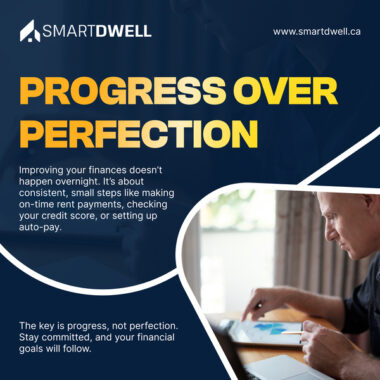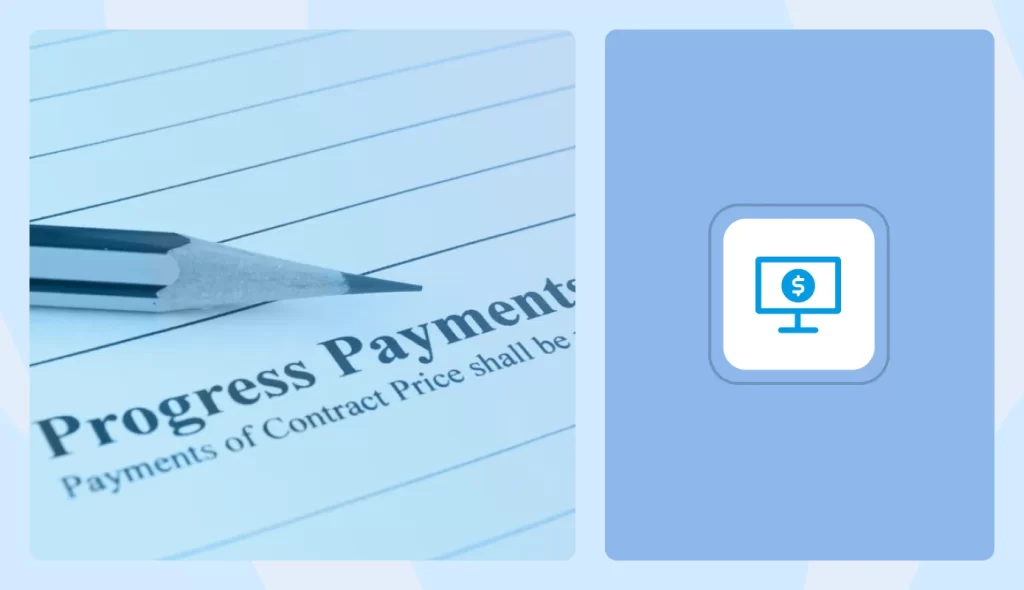In today’s fast-paced world, we are often told that perfection is the ultimate goal. Whether it’s achieving a perfect credit score, following a flawless budget, or making the ideal investment, the pressure to do everything right can feel overwhelming. But when it comes to financial health, the real goal should be consistent, measurable progress—not unattainable perfection.
For renters, young professionals, or anyone striving to improve their financial future, understanding the value of “progress over perfection” can be transformative. It allows for a more realistic, sustainable approach to managing money, building credit, and making long-term financial improvements.
In this blog, we’ll explore why prioritizing progress is not only more practical but also more powerful than chasing perfection, especially when it comes to credit building and financial stability.
The Perfection Trap in Personal Finance
The idea of perfection in personal finance often leads to paralysis. People put off budgeting until they can create the “perfect” plan. They avoid opening a credit card for fear of mismanaging it. Renters hesitate to report their rent payments because they believe it won’t make a significant impact on their credit. In all of these cases, the pursuit of perfection becomes an excuse for inaction.
This mindset can be especially damaging for those starting with limited credit history or those trying to recover from past financial mistakes. Instead of taking small, beneficial steps forward, individuals remain stuck—waiting for the perfect conditions that may never come.
The truth is, personal finance is an evolving journey. There will always be challenges, setbacks, and learning curves. Embracing progress over perfection frees you from the unrealistic expectation of getting everything right from the start.
The Power of Small Financial Wins
Every step forward, no matter how small, is a building block for greater financial growth. These small wins add up and lay the foundation for stronger habits and outcomes. Here are some examples:
-
Making on-time rent payments each month and reporting them to credit bureaus helps establish a positive payment history, which is the most important factor in your credit score.
-
Checking your credit report regularly helps you stay informed, identify errors, and take corrective action before problems escalate.
-
Using a credit card responsibly, even for small purchases, builds your credit profile over time when paired with on-time payments and low utilization.
-
Setting aside a small savings amount each month, even if it’s modest, can eventually grow into an emergency fund.
None of these actions are flashy or perfect. But over time, their consistency leads to noticeable improvement. Financial stability is not created overnight—it’s the result of ongoing, intentional effort.
Why Renters Should Embrace Progress
For renters, the journey toward financial independence and a stronger credit score can feel particularly challenging. Unlike homeowners, renters often don’t see a return on their monthly payments. However, this perception is changing with the rise of rent reporting services and credit-building platforms.
By reporting rent payments to credit bureaus, renters can transform a routine expense into a strategic financial asset. This doesn’t require a dramatic lifestyle change or risky financial decisions—just a simple shift in how payments are tracked and reported.
It’s not about achieving a perfect score immediately. It’s about establishing a consistent payment record, improving over time, and gaining access to better financial opportunities. This mindset shift—from feeling limited by renting to using it as a stepping stone—is a perfect example of progress over perfection in action.
The Role of Credit Education in Empowering Progress
One of the reasons perfectionism thrives in personal finance is due to a lack of accessible, relatable education. When people don’t understand how credit works or how small steps contribute to financial growth, they assume perfection is required for success.
This is where financial literacy and credit education play a crucial role. Understanding how credit scores are calculated, how rent can impact your credit, and how to build a financial foundation with limited resources helps individuals focus on what they can do, rather than what they can’t.
Education empowers people to take action. It encourages renters to track their credit scores, learn from their mistakes, and seek support when needed. The more people understand that financial wellness is a series of choices—not a single perfect decision—the more motivated they become to make consistent progress.
Letting Go of Financial Guilt
Another side effect of chasing perfection is guilt. People feel ashamed for past financial missteps, like missing a rent payment, maxing out a credit card, or defaulting on a loan. While accountability is important, guilt is not a productive long-term motivator.
Progress-focused financial growth allows room for mistakes and recovery. It emphasizes learning from experience and making improvements rather than obsessing over failures. If you’ve missed a payment in the past, the goal becomes making sure the next one is on time. If your credit score dipped due to high utilization, the next step is to work toward paying down balances.
This mindset not only reduces financial anxiety but also fosters a healthier relationship with money. Over time, financial decisions are guided by clarity and confidence—not shame or fear.
Practical Steps to Embrace Progress Over Perfection
If you’re ready to prioritize progress in your financial life, here are a few practical strategies to get started:
-
Start Tracking Your Credit Score: Use credit monitoring tools to view your score regularly. It’s okay if it’s not perfect. The key is to see where you stand and watch it improve over time.
-
Report Your Rent Payments: Enroll in a platform that reports rent payments to credit bureaus. This simple action turns a recurring expense into a credit-building opportunity.
-
Pay Bills On Time: Set up automatic payments or calendar reminders to avoid late fees. Each on-time payment builds your credit history and improves your financial reputation.
-
Celebrate Small Wins: Whether it’s paying off a credit card, increasing your score by 10 points, or saving your first $100—acknowledge these milestones as proof of progress.
-
Educate Yourself: Read blogs, attend webinars, or follow financial experts to increase your understanding. Knowledge helps replace fear with confidence.
Conclusion
“Progress over perfection” isn’t just a motivational phrase—it’s a strategic philosophy for anyone serious about improving their financial health. It reminds us that credit growth, financial literacy, and long-term stability are the results of many small actions done consistently—not a single perfect move.
Whether you’re a renter aiming to build credit, a young adult trying to establish a financial foundation, or someone recovering from past mistakes, the key is to keep moving forward. Every on-time payment, every dollar saved, every informed decision—it all counts.
Don’t wait for the perfect moment. Start with what you can do today. Because in finance, as in life, progress is always more powerful than perfection.






